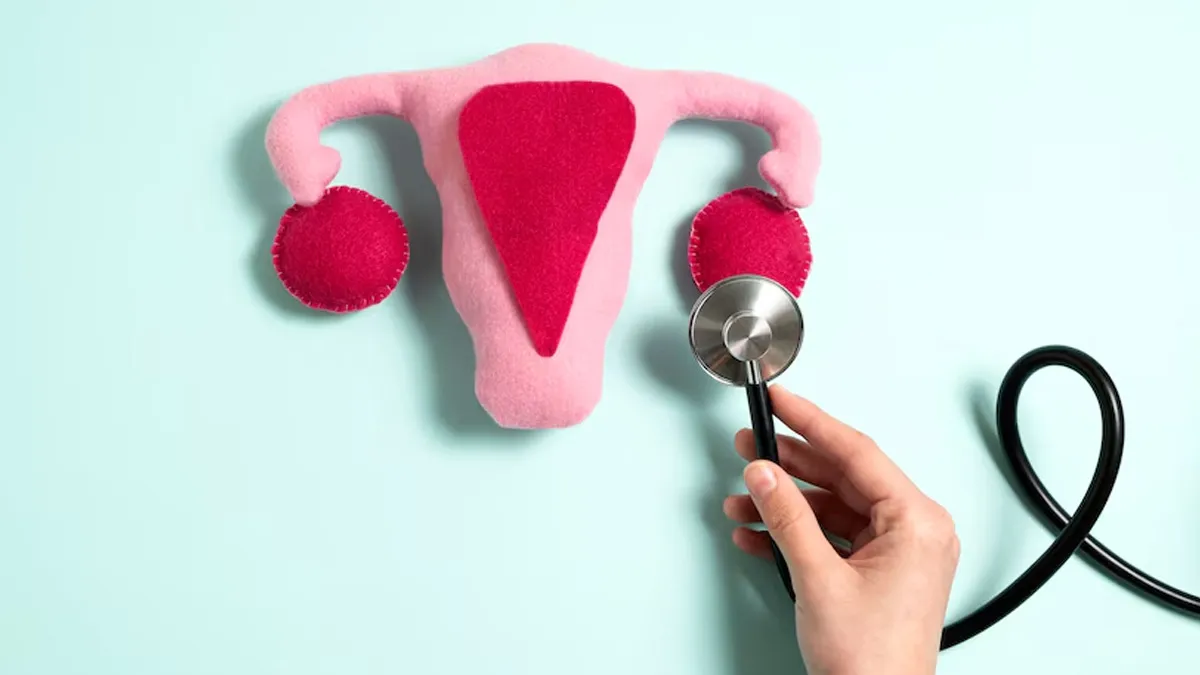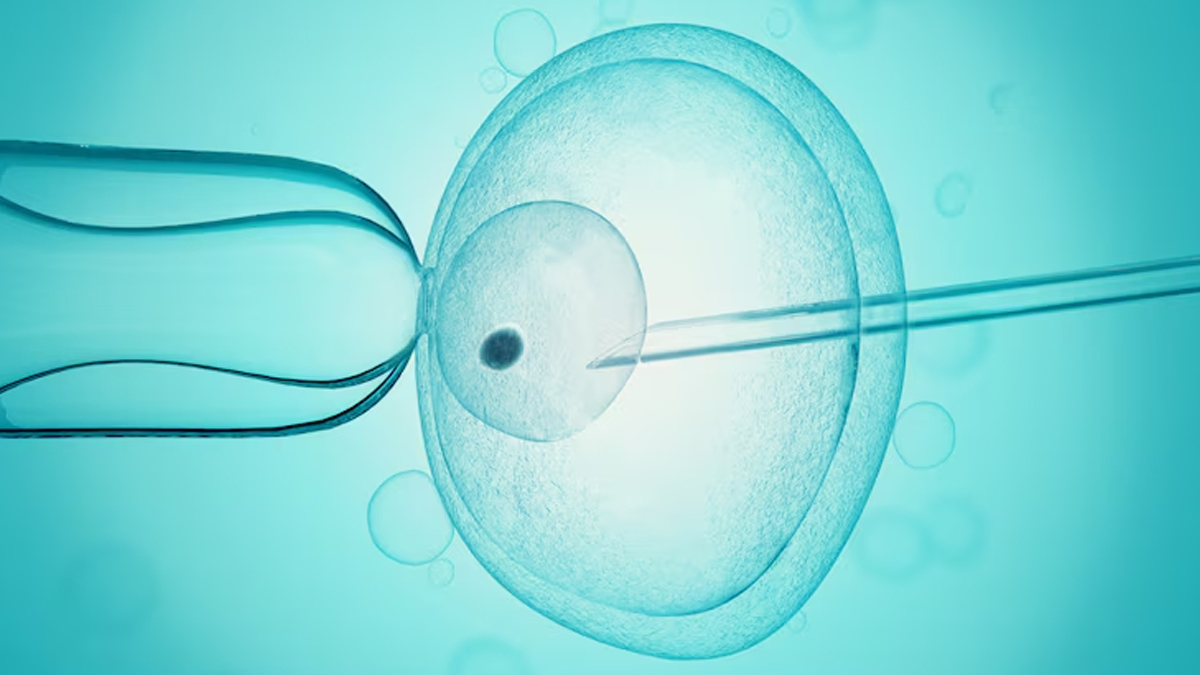
Polycystic Ovary Syndrome (PCOS) is one of the most common endocrine disorders affecting women of reproductive age. It is a major cause of infertility due to hormonal imbalances that disrupt ovulation. However, while PCOS can make conception challenging, various fertility treatments can help women with this condition achieve pregnancy. Some treatments have proven to be highly effective, while others offer limited success.
Table of Content:-
To understand this in detail, OnlyMyHealth team interacted with Dr Chetna Jain, Director of the Department of Obstetrics and Gynaecology, Cloudnine Group of Hospitals, Sector 14, Gurgaon. She explains, "PCOS is a common endocrine disorder that affects women of reproductive age. One of the most challenging aspects of PCOS is its impact on fertility. Due to hormonal imbalances, women with PCOS often experience irregular menstrual cycles, anovulation (lack of ovulation), and an increased risk of infertility."
Understanding PCOS and Its Impact on Fertility
PCOS is characterised by a combination of symptoms, including:
- Irregular or absent periods
- High levels of androgens (male hormones), leading to acne, excess hair growth, and scalp thinning
- Polycystic ovaries, where the ovaries become enlarged and contain multiple small cysts
- The hormonal imbalances associated with PCOS prevent regular ovulation, making conception difficult Without ovulation, there is no egg available for fertilisation, reducing the chances of pregnancy.
However, Dr Jain said that with the right fertility treatments, many women with PCOS can successfully conceive.
Effective Fertility Treatments for Women with PCOS
1. Lifestyle Modifications

Before opting for medical treatments, lifestyle changes are often the first step in improving fertility. Research suggests that maintaining a healthy weight and engaging in regular physical activity can help regulate hormones and increase the chances of ovulation.
Weight Loss: Dr Jain notes, "For overweight women with PCOS, even a modest weight loss of 5-10% can help regulate menstrual cycles and promote ovulation." Weight loss can also reduce insulin resistance, a common issue in PCOS, improving overall hormonal balance.
Dietary Adjustments: A balanced diet rich in whole grains, lean proteins, vegetables, and healthy fats can stabilise insulin levels and support reproductive health.
Also read: Low Ovarian Reserve: Understanding Its Impact On Women’s Fertility
2. Ovulation-Inducing Medications

The most common fertility treatment for women with PCOS involves medications that stimulate ovulation.
Clomiphene Citrate (Clomid): This is often the first-line treatment for PCOS-related infertility. It works by blocking estrogen receptors in the brain, prompting the release of hormones that stimulate the ovaries. Dr Jain explained, “Clomid induces ovulation in approximately 80% of women with PCOS, with a pregnancy success rate of 30-40% over six cycles.”
Letrozole (Femara): “Originally a breast cancer drug, Letrozole is increasingly preferred for PCOS-related infertility. It lowers estrogen levels, stimulating the ovaries to produce eggs. In many cases, Letrozole has shown better results than Clomid, particularly in women who are Clomid-resistant,” Dr Jain said. She further emphasised to not take any of the above mentioned medications without consulting a doctor.
3. Injectable Hormones (Gonadotropins)

For women who do not respond to Clomid or Letrozole, injectable hormones may be an option.
Gonadotropins (FSH and LH injections): These directly stimulate the ovaries to produce eggs, increasing the chances of ovulation. “While effective, gonadotropins come with risks such as multiple pregnancies (twins or triplets) and ovarian hyperstimulation syndrome (OHSS), a condition where the ovaries swell and cause complications,” Dr Jain said.
Intrauterine Insemination (IUI): Often combined with gonadotropins, IUI involves placing sperm directly into the uterus to increase fertilisation chances.
4. In Vitro Fertilisation (IVF)

For women who do not conceive with ovulation-inducing medications or gonadotropins, IVF may be recommended.
How IVF Works: Eggs are retrieved from the ovaries, fertilised with sperm in a lab, and then implanted into the uterus.
Success Rates: According to Dr Jain, “IVF has a success rate of around 40-45% per cycle for women under 35, but success declines with age and other factors.”
Treatments That Are Less Effective or Not Recommended
While many treatments can aid fertility in PCOS, some options have limited success.
- Metformin: Primarily used to treat insulin resistance, Metformin can indirectly improve ovulation in some women but is usually combined with other treatments.
- Alternative Therapies: Acupuncture, herbal medicine, and other natural remedies may provide general health benefits but lack strong scientific evidence for improving fertility in PCOS.
Conclusion
Fertility treatments for women with PCOS vary depending on the individual’s condition, age, and overall health. Dr Jain emphasises, "While PCOS can complicate conception, there are various fertility treatments available that can help women with this condition achieve pregnancy. However, not all treatments work for everyone, and the effectiveness of different options depends on the severity of the condition and individual factors." It is essential for women with PCOS to work closely with a fertility specialist to determine the best course of action. With the right treatment approach, many women with PCOS can successfully conceive and have a healthy pregnancy.
Also watch this video
How we keep this article up to date:
We work with experts and keep a close eye on the latest in health and wellness. Whenever there is a new research or helpful information, we update our articles with accurate and useful advice.
Current Version